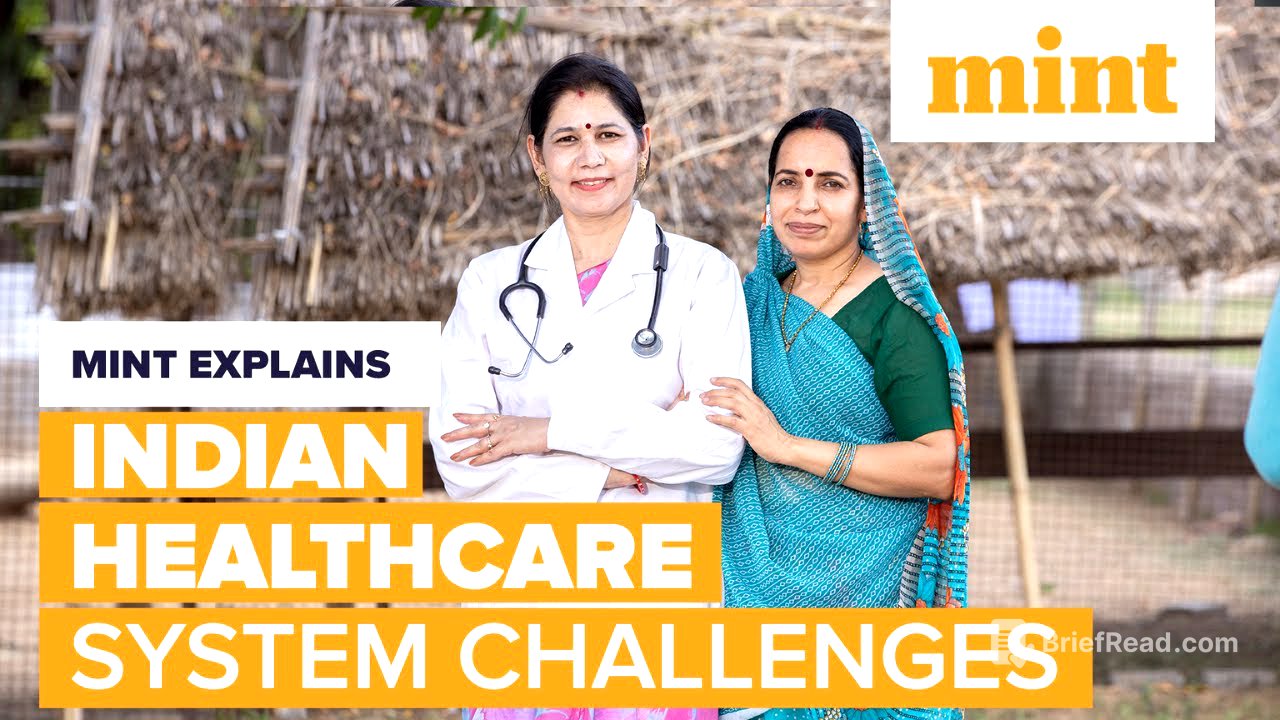TLDR;
The video discusses the state of India's healthcare system, highlighting its challenges and achievements. It covers issues such as neglected infrastructure, organ scarcity, antimicrobial resistance, and the role of government initiatives like Ayushman Bharat. Despite progress in areas like vaccination and government schemes, India's healthcare system faces significant hurdles, including inadequate infrastructure, low organ donation rates, and the growing threat of antimicrobial resistance.
- India's healthcare infrastructure is lacking, with shortages of medical professionals and an urban-rural divide.
- Organ donation rates are low compared to other countries, leading to a scarcity of organs for transplant.
- Antimicrobial resistance poses a significant threat, with many infections becoming harder to treat.
- Government initiatives like Ayushman Bharat aim to improve healthcare accessibility but face challenges in implementation.
Neglected Infrastructure [1:15]
India's healthcare infrastructure is struggling with a shortage of trained medical professionals and a significant disparity between urban and rural areas. The doctor-to-population ratio is low, with only 7.27 doctors for every 10,000 people, falling short of the WHO's recommended minimum of 10. Rural community health centers face a severe shortfall of pediatricians (82%) and general physicians (80%). Furthermore, less than half of Primary Health Centers operate around the clock, highlighting the infrastructure's deficiencies.
Organ Scarcity [2:16]
Organ donation rates in India are notably low, contributing to poor health infrastructure. Only 5,561 organ transplants were performed last year, while 49,745 Indians are still waiting for organ replacements. The country has an organ donation rate of about 0.52 per million population, significantly lower than Spain's rate of 47 donors per million. Kerala, Delhi, and Maharashtra have the highest number of organ pledges, with Kerala leading with 130,992 pledges.
Anti-Microbial Resistance Threat [3:02]
Antimicrobial resistance (AMR) poses a significant threat to public health in India, which has one of the highest burdens of infections driven by such resistance. Many bacteria, viruses, and fungi are no longer responding to existing medicines, making infections harder to treat. For example, only 43% of pneumonia samples containing a particular pathogen could be treated with first-line antibiotics in 2021, compared to 65% in 2016. Addressing this threat requires investments in new class antibiotics, but India has been falling short, and little data is available on funding allocated to AMR research.
Vaccination [4:02]
India's immunization program successfully vaccinates around 26.7 million newborns and 29 million pregnant women annually. The country's well-established vaccine infrastructure enabled it to rapidly produce, administer, and export COVID-19 vaccines. A study published in The Lancet showed that India's immunization program helped prevent over 4.2 million deaths in the country.
Government's Role [4:34]
Around 63% of all health expenses in India are paid out of pocket by households, placing a significant burden on families. The government has launched several health insurance schemes to alleviate this burden, including Ayushman Bharat, launched in 2018. Ayushman Bharat has registered over 370 million users and provided financial assistance for 43.4 million hospital admissions worth 51,749 crore rupees. Despite its success, the scheme faces challenges such as underutilization of allocated funds, concentration of health services in urban areas, lack of awareness, and a growing population. Overall, Ayushman Bharat has been a critical step in making healthcare more accessible and affordable for millions of Indians.









